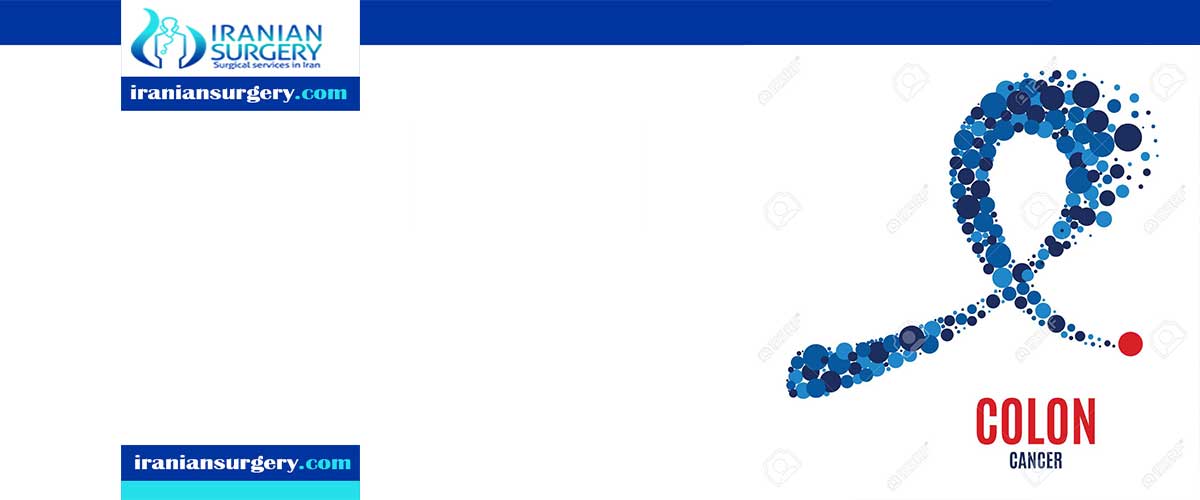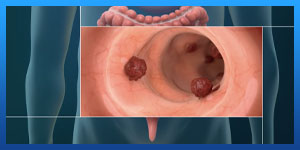Colorectal cancer risk factors

What are colorectal cancer risk factors?
Who is at high risk for colorectal cancer?
What are the chances I have colon cancer?
Colorectal cancer Prevention
What are colorectal cancer risk factors?
The exact cause of bowel cancer is still unknown. However, research has shown several factors may make you more likely to develop it.
Being older
Your risk of colorectal cancer goes up as you age. Younger adults can get it, but it's much more common after age 50.
Family history
Having a family history of bowel cancer in a first-degree relative a mother, father, brother or sister – under the age of 50 can increase your lifetime risk of developing the condition yourself.
If you're particularly concerned that your family's medical history may mean you're at an increased risk of developing bowel cancer, it may help to speak to your GP.
If necessary, your GP can refer you to a genetics specialist, who can offer more advice about your level of risk and recommend any necessary tests to periodically check for the condition.

Read more about : Metastatic myxofibrosarcoma treatment with the best Iranian oncologist surgeon
Read more about : What size of ovarian cyst is dangerous?
Read more about : Virgin tightening surgery before and after photo
Read more about : Sign of Anal cancer
Genetic conditions
There are two rare inherited conditions that can lead to bowel cancer:
- familial adenomatous polyposis (FAP) – a condition that triggers the growth of non-cancerous polyps inside the bowel
- hereditary non-polyposis colorectal cancer (HNPCC), also known as Lynch syndrome – an inherited gene fault (mutation) that increases your bowel cancer risk
Smoking
People who smoke cigarettes are more likely to develop bowel cancer, as well as other types of cancer and other serious conditions, such as heart disease.
Alcohol
Drinking alcohol has been shown to be associated with an increased risk of bowel cancer, particularly if you regularly drink large amounts.
Having an inherited syndrome
About 5% of people who develop colorectal cancer have inherited gene changes (mutations) that cause family cancer syndromes and can lead to them getting the disease.
Digestive disorders
Some conditions affecting the bowel may put you at a higher risk of developing bowel cancer.
For example, bowel cancer is more common in people who have had extensive Crohn's disease or ulcerative colitis for more than 10 years.
If you have one of these conditions, you'll usually have regular check-ups to look for signs of bowel cancer from about 10 years after your symptoms first develop.
Inactivity
People who are physically inactive have a higher risk of developing bowel cancer.
You can help reduce your risk of bowel and other cancers by being physically active every day.
Being overweight or obese
If you are overweight or obese (very overweight), your risk of developing and dying from colorectal cancer is higher. Being overweight (especially having a larger waistline) raises the risk of colon and rectal cancer in both men and women, but the link seems to be stronger in men.
Read more about: Colorectal Cancer Pathophysiology
Read more about: Does colorectal cancer occur in old people?
Who is at high risk for colorectal cancer?
Your risk of getting colorectal cancer increases as you get older. About 90% of cases occur in people who are 50 years old or older. Other risk factors include having Inflammatory bowel disease such as Crohn's disease or ulcerative colitis. A personal or family history of colorectal cancer or colorectal polyps.
What are the chances I have colon cancer?
On average, the lifetime risk of developing colon cancer is about one in 23 for men and women combined (4.5%), however, this varies widely according to individual risk factors. About 71% of cases arise in the colon and about 29% in the rectum.
Read more about: colorectal cancer staging
Read more about: Colorectal Cancer Recovery
Colorectal cancer Prevention
Doctors recommend that people with an average risk of colon cancer consider colon cancer screening around age 50. But people with an increased risk, such as those with a family history of colon cancer, should consider screening sooner.
Several screening options exist each with its own benefits and drawbacks. Talk about your options with your doctor, and together you can decide which tests are appropriate for you.
Lifestyle changes to reduce your risk of colon cancer
You can take steps to reduce your risk of colon cancer by making changes in your everyday life. Take steps to:
- Eat a variety of fruits, vegetables and whole grains.Fruits, vegetables and whole grains contain vitamins, minerals, fiber and antioxidants, which may play a role in cancer prevention. Choose a variety of fruits and vegetables so that you get an array of vitamins and nutrients.
- Drink alcohol in moderation, if at all.If you choose to drink alcohol, limit the amount of alcohol you drink to no more than one drink a day for women and two for men.
- Stop smoking.Talk to your doctor about ways to quit that may work for you.
- Exercise most days of the week.Try to get at least 30 minutes of exercise on most days. If you've been inactive, start slowly and build up gradually to 30 minutes. Also, talk to your doctor before starting any exercise program.
- Maintain a healthy weight.If you are at a healthy weight, work to maintain your weight by combining a healthy diet with daily exercise. If you need to lose weight, ask your doctor about healthy ways to achieve your goal. Aim to lose weight slowly by increasing the amount of exercise you get and reducing the number of calories you eat.
Read more about: How you can Prevented from Colorectal Cancer?
Read more about: Colorectal Cancer treatment
Read more about: colorectal cancer treatments

